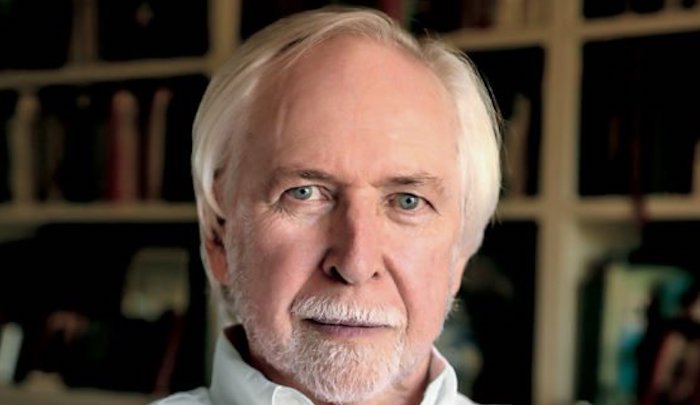Imran Jan |
“See, that is a drone right there”, the father pointed out to his young son inside the Smithsonian museum in Washington D.C. The young kid asked, “What kind of drone is that?” The father instantly replied, “It keeps our soldiers’ safe young man.” The giant-killing machines with autographs of US army soldiers over their hellfire missiles almost made me throw up. I spat at the mindset. The giant kites were an amusement to the American families that had gathered there that evening in the spring of 2014.
However, in the tribal areas of Pakistan, on the receiving end of those autographed missiles, those kites are called ‘bangana’, a symbol of instant and guaranteed death. The dead are always dehumanized as ‘suspected militants’ or terrorists to justify the drone strikes and sanitize war. There is another layer of it as well. In the United States, people have an addictive need to feel good about themselves by being convinced that others are bad.
The Vietnamese in America are openly critical of Ho Chi Minh. I met an Iraqi in Houston who had been chosen to immigrate to the US along with his family as an example of how America helps the Iraqi people.
Jason Rezaian, a Tehran correspondent for the Washington Post had been arrested by the Iranian authorities in 2014 accusing him to be an American spy and imprisoning him. He was released in 2016. Yesterday morning while driving to work, I was listening to his interview on National Public Radio (NPR). The show host sounded very concerned and Iran was the villain of the morning. His book Prisoner is out.
He joins the countless others who were held in captivity, tortured, deprived of free speech, or treated badly in one form or another by a foreign regime despised by Washington. Marzieh Hashemi, an American journalist working for Iranian state-funded Press TV, was arrested by the FBI just days ago. At the time of this writing, she has not been charged with a crime. Would someone be publishing her book?
Read more: Afghanistan: The graveyard of US Empire
A few days ago, Taha Siddiqui was making headlines with his uncorroborated story about an attempt on his life in Pakistan by the country’s intelligence agency. Living in exile in Paris, Siddiqui is still “paranoid about being followed” and fears being pushed by an ISI agent to the subway platform tracks at the last moment. He wrote that in a piece in the Washington Post.
Similarly, we have seen many dissidents of many nations that Washington doesn’t get along with, come to America and speak about the filth of the countries they escaped from. Every Iranian professor and student that I met in American universities are seen as ‘our kind of free-minded ones’ by their peers provided they have made their hatred for the Ayatollahs known.
The addiction to this dehumanizing asks for more about the bad villains of Pakistan army. People such as Hussain Haqqani, Taha Siddiqui, and many such entrepreneurs cater to this market.
The Vietnamese in America are openly critical of Ho Chi Minh. I met an Iraqi in Houston who had been chosen to immigrate to the US along with his family as an example of how America helps the Iraqi people. He had an enormous critique for Saddam Hussein whom he said had destroyed Iraq. I asked him if he thought the US invasion also destroyed Iraq. No wonder he didn’t agree with that statement. If he had, he wouldn’t be there.
There are countless examples but the point is that the American ears are wide open to hear the stories of those who were victims of the American enemies. Dissidents are most of the time from countries that are the usual suspects; Russia, China, North Korea, Iran, Venezuela, Pakistan, and so forth. Are there no dissidents in England or Japan or Australia? Truth be told, there are worthy and unworthy victims.
Read more: Relations beyond the veil: Pakistan, Israel and the Muslim world
So, for example, Mordechai Vanunu is a dissident from Israel. He was the whistleblower who leaked the Israeli nuclear program. That earned him 18 years in prison, more than 11 of which were in solitary confinement. He was abducted by Mossad agents using what’s called a honey trap in the intelligence jargon. We never saw him speaking on leading American TV channels or having his book published and available on front display in Barnes & Noble for a simple reason that Israel is not a hated country in Washington.
Advocacy for tolerance and respect for opposing views are abundant when other nations, remember the ones Washington doesn’t get along with, incarcerate their dissidents. Yet, no urge of patience surges to greet the power system in Washington when the dissident is an American or from an allied country. What about the American dissident Norman Finkelstein who was denied tenure at the DePaul University in Chicago while Fraudsters such as Alan Dershowitz continue to teach at Harvard? What about Edward Snowden whose passport was revoked by the so-called liberal administration at the time?
Read more: Soviet army nearly ‘battled’ US filmmakers in Prague Spring
Every newspaper, every TV channel in America is telling us how the army in Pakistan and their intelligence agency ISI are acting against the American interests in Afghanistan. That hatred created by a sophisticated propaganda campaign is hungry for more critique of the Pakistani Establishment. By dehumanizing others, Americans feel humanized. The addiction to this dehumanizing asks for more about the bad villains of Pakistan army. People such as Hussain Haqqani, Taha Siddiqui, and many such entrepreneurs cater to this market.
Imran Jan is a political analyst. He can be reached at imran.jan@gmail.com. Twitter @Imran_Jan. The views expressed in this article are author’s own and do not necessarily reflect the editorial policy of Global Village Space.














